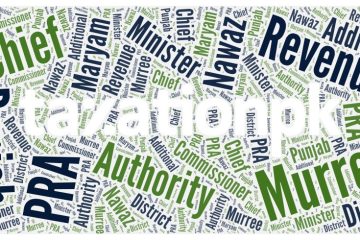Pakistan’s real estate sector is bracing for a potential overhaul as the Federal Board of Revenue (FBR) contemplates a comprehensive revamp of the tax system for property transactions. This move, part of the preparations for the upcoming 2024-25 budget, which will be presented on June 7th, 2024 aims to bring the sector under a more robust tax net and increase government revenue. However, the proposed changes have sparked concerns among realtors who worry about the potential impact on the market.
Proposed Changes and Rationale:
The FBR is considering a multi-pronged approach to increase tax collection from property transactions:
- Higher Tax Rates for All: One key proposal involves raising tax rates for both sellers and buyers, regardless of their tax filing status (filers or non-filers). This aims to capture a wider tax base and ensure a more equitable contribution.
- Closing the Capital Gains Loophole: Currently, capital gains tax (profit made from selling property) may not apply depending on the holding period. The FBR is exploring ways to tax capital gains irrespective of ownership duration, potentially plugging a revenue leakage.
- More Realistic Property Valuations: The FBR is looking to revise property valuation tables to better reflect current market prices. This could lead to higher tax bills for property owners, as the tax is often calculated based on the declared value.
- Taxing Broader Investment Assets: The definition of taxable property might be expanded to encompass valuable personal belongings and potentially even cryptocurrencies. This broadens the scope of capital gains taxation and captures a wider range of investment activities.
The Rationale Behind the Reforms:
The FBR’s proposals stem from a desire to:
- Increase Tax Revenue: The real estate sector in Pakistan has historically been under-taxed, leading to significant revenue loss for the government. These changes aim to capture a fairer share of the profits generated from property transactions.
- Promote Equity: The proposed progressive tax rates (higher rates for higher-value transactions) ensure a more equitable contribution from different segments of the market.
- Reduce Capital Flight: The FBR hopes that closing tax loopholes and ensuring a more efficient system will discourage the outflow of investment capital to other countries.
Industry Concerns and Recommendations:
While the FBR’s proposals aim to strengthen the tax system, realtors have expressed concerns about their potential impact on the market:
- Dampening Market Activity: Realtors fear that higher tax rates and stricter regulations could discourage potential buyers and sellers, leading to a slowdown in property transactions.
- Double Taxation: The industry argues that some proposals, like integrating capital gains into income tax, could lead to double taxation, placing an undue burden on investors.
- Market Uncertainty: Frequent changes in tax regulations can create uncertainty and hinder long-term investment decisions in the real estate sector.
Realtors have proposed alternative solutions to address the FBR’s concerns:
- Transparency and Predictability: Realtors advocate for finalizing and notifying revised property valuation tables to ensure transparency and predictability in the tax environment.
- Moderate Tax Increases: A gradual increase in tax rates, rather than a significant jump, might be a more sustainable approach to raise revenue without discouraging investment.
- Streamlining Processes: Simplifying tax filing procedures and reducing transaction costs could encourage more people to comply with tax regulations.
- Maintaining Stability: Realtors recommend maintaining the current holding period for capital gains tax to provide stability and predictability for investors.
Looking Ahead:
The final shape of the proposed property tax reforms will depend on discussions between the FBR, real estate stakeholders, and the government. Careful consideration of the potential economic and market impacts will be crucial for implementing a system that balances revenue generation with fostering a healthy real estate sector.
The Road Ahead: Balancing Revenue and Market Growth
The FBR’s proposed property tax reforms represent a significant shift in Pakistan’s tax policy. While the government seeks to enhance revenue collection and create a more equitable tax system, realtors highlight the potential for negative consequences on the market. Striking a balance between these competing interests will require careful consideration and open dialogue between policymakers, the real estate industry, and the public.
Here are some key questions to consider as the discussions unfold:
- What specific tax rate increases would be most effective in raising revenue without dampening market activity?
- How can the FBR ensure a fair and transparent property valuation system across different cities?
- Can the government implement measures to incentivize formalization and compliance within the real estate sector?
- What alternative revenue generation strategies could be explored to lessen the reliance on property taxes?
By addressing these questions and engaging in constructive dialogue, Pakistan can navigate the path towards a more robust and equitable tax system while fostering sustainable growth in the real estate sector.







